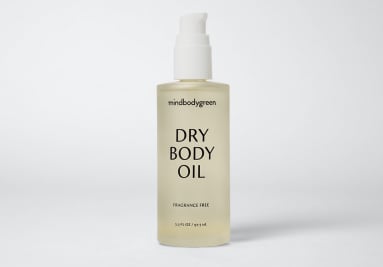
Image by Alex Tan / Death to the Stock Photo
February 13, 2023
Our editors have independently chosen the products listed on this page. If you purchase something mentioned in this article, we may
Taking care of your skin is far from superficial. Your skin is a reflection of your overall health, after all—some complexion concerns are very indicative of deep-rooted issues (like hormonal imbalance, digestive challenges, and so on). Beauty can be playful and light, for sure, but it can also provide vital health insights, spark necessary tech innovations, and inspire your inner chemist. That’s what I love most about the field (and, well, my job). Beauty really permeates our everyday lives!
So while heart health may be top of mind this February—many refer to it as American Heart Month1—skin health should also remain on your radar. It turns out, the two are more intertwined than you think.
Advertisement
This ad is displayed using third party content and we do not control its accessibility features.
The link between skin & heart health.
“Inflammation” has become a bit of a nebulous term these days, but chronic inflammation really is the core of all unwelcome health concerns, including cardiovascular disease. And guess what? Skin inflammation can translate into general inflammation in the body. A 2019 study has even demonstrated a link between skin dysfunction and various health conditions caused by chronic inflammation.
Now, the term “skin dysfunction” may throw you off a bit. Research2 has shown that more intense skin conditions (like eczema and psoriasis) are associated with an increased risk of cardiovascular issues, likely due to inflammation in the body. But according to board-certified dermatologist Cynthia Bailey, M.D., founder of Dr. Bailey Skin Care, skin concerns don’t have to be that severe to potentially lead to cardiovascular issues down the road.
“Simple skin barrier weakening associated with age has been found to increase circulating blood markers of inflammation,” she explains. (It’s a concept called inflammaging3.) “The common—and big—age related health issues, such as heart disease, diabetes, osteoporosis and Alzheimers, are also associated with an increase in these markers of inflammation.”
In the aforementioned 2019 study, researchers found that using barrier repair moisturizers could actually reduce pro-inflammatory cytokines in the blood. Coincidence? We think not—and neither does Bailey.
And at the risk of sounding like a broken record, your skin is your largest organ. It works to protect other organs in your body, like, yes, your heart.
“Below the surface of the skin is a fat layer that protects your bones, nerves and circulatory system from extreme heat and cold,” notes skin care expert Pamela Friedman, founder of CV Skinlabs. “It also provides protective padding from impacts, and helps store energy like a battery.” When your skin barrier weakens, that layer becomes more vulnerable to external aggressors, which could also explain why your cardiovascular and skin health are so intertwined.
What comes first: skin concerns or heart issues?
“As a clinician, I’ve noticed in my 35 years of practice that middle-aged to elderly patients with dry skin are often also likely to have health problems, such as heart disease, and be on prescriptions for diuretics and statin—signs of high blood pressure and higher than average cardiovascular risk factors that require treatment,” Bailey shares.
It begs the question: Did the patients’ dry skin play a role in setting up those heart problems, or did the inflammation already present result in drier skin over time? Or did the medications themselves simply lead to dryness? It becomes a classic “chicken and egg” situation that research can’t quite decipher.
“But the association between healthy skin and a healthy heart is real,” Bailey declares. “My professional opinion is that it all comes full circle; wellness tips to lower overall physiologic inflammation need to include hydrating skin care.”
Advertisement
This ad is displayed using third party content and we do not control its accessibility features.
How to strengthen your skin barrier—and protect your heart.
So in addition to traditional methods to optimize heart health—regular cardio exercise, a balanced diet full of omega-3’s, et al.—skin barrier support is a worthwhile venture. Both Bailey and Friedman recommend keeping your skin as nourished as possible, with hydrating moisturizers that include a blend of humectants, emollients, and occlusives to properly attract and trap in moisture.
Make sure to moisturize after every shower, applying a rich formula within three minutes after toweling dry, says Bailey. You can even top off your moisturizer with a fast-absorbing dry oil to really lock in hydration and feed your skin nourishing fatty acids.
“Go one step further and bathe in such a way to not stress your skin barrier lipids; use only gentle cleansers and warm—not steamy hot—water when you bathe,” adds Bailey. “Hot water and harsh soaps strip barrier lipids, ultimately putting barrier protein at risk as well. This leads to skin barrier damage, xerosis, and skin inflammation called xerotic [or asteatotic4] eczema.”
The takeaway.
We never thought skin care was frivolous, but now you have one more reason to commit to a regular routine. This isn’t meant to spook you into thinking your chapped, wintry skin will result in heart disease (it’s way more nuanced than that), but we can’t ignore the connection between a weakened skin barrier and inflammation over time. Your complexion absolutely has an impact on your healthspan—let’s call it a whole new layer to “skin longevity.”


